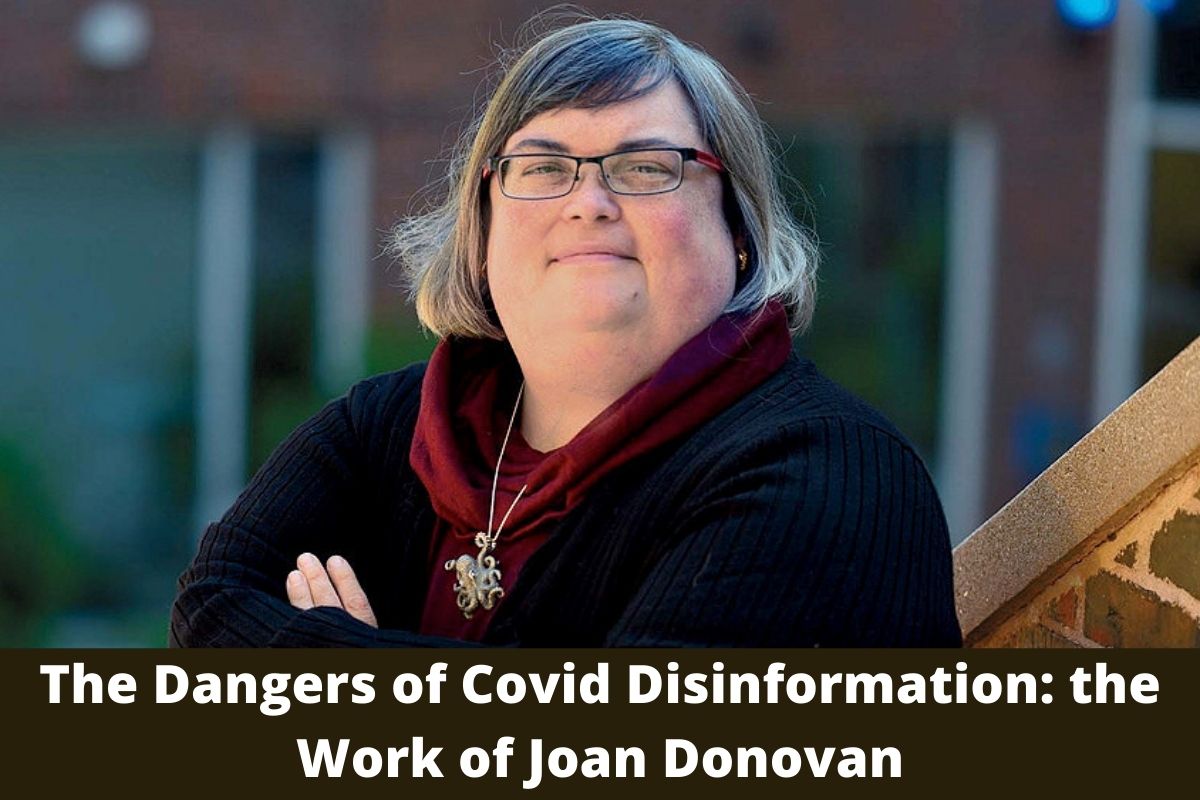Information is power– especially in the era of the internet where all of it is at our fingertips. Everything can be digested and shared with hundreds, thousands, millions of people with just a click. The way media functions in the modern world with its high speed and accessible characteristics has proven itself vital to the dissemination of information.
But– as a famous superhero movie quote says: “With great power comes great responsibility,” these characteristics also mean that the fast-paced spread of information can have extremely devastating consequences.
Enter Dr. Joan Donovan: a former punk-rocker turned Harvard professor, who was one of the first researchers who predicted the widespread medical disinformation that would make the fight against the coronavirus pandemic even more challenging than it already is. Seeing xenophobia break out on alt-right platforms and then-president Donald Trump calling the serious predicament caused by the “China Virus”, and Trump supporters storming the Capitol in January, Donovan tried to warn her followers on Twitter, saying: “Today, we will witness the full break of the MAGA movement from representative politics.”
Read More: Schools Support Masks and Vaccines, New Poll Suggests.
But what exactly accelerates some people’s opinions on concerns related to public health? Donovan comes up with an insight, this time targeted towards tech companies and their algorithms. She said that tech companies and social media platforms should update their system so as not to quell disinformation even further. In the interest of the public, Donovan pleads for these companies to push for updated regulations that would ensure the general public’s protection.
And yet, as of now, we see the consequences of disinformation manifest in widespread mask and vaccine hesitancy, distrust of science and medicine, as well as the equation of political views to methods that can actually preserve human life.
In a chilling observation, Donovan reflects on the recently coined term “The Great Reset”, which is used by alt-right groups claiming that rich people, as well as world leaders, are merely utilizing the pandemic for their own benefit. Donovan says it is very reminiscent of antisemitic tropes about “Jews controlling the world” as well as similar terms like “The New World Order” or “Deep State”.
Read More: FDA Approves Pfizer Vaccine. Are You Still Hesitant to Get a Shot?
Donovan is part of a team of over 20 researchers dissecting major disinformation campaigns at Harvard, the Technology and Social Change Project (TaSC). In their description, it says that “TaSC explores how media manipulation is a means to control the public conversation, derail democracy, and disrupt society. TaSC conducts research, develops methods, and facilitates workshops for journalists, policymakers, technologists, and civil society organizations on how to detect, document, and debunk media manipulation campaigns.” Their work is largely focused on the content released on social media platforms and online forums. They also manage to trace false claims especially those made by influential people and/or high-ranking officials and identify the phenomena as to why these certain types of information — no matter how absurd– can be easily believed.
An example of this is how then President Trump said that hydroxychloroquine could cure COVID-19, which Donovan and her team attributed to “cloaked science”. or the use of obscure medical jargon to make statements more believable. Another example is how anti-maskers falsely attribute mask-wearing to when the Nazis forced Jews to wear yellow stars.
Read More: Veteran Activist Jesse Jackson Hospitalized for COVID-19.
Donovan admits that this line of work is far from easy. Apart from tedious tasks of picking apart videos by white supremacists, neo-Nazis, racists, and other subculture groups, Joan Donovan also has to deal with harassment and death threats. But then again, her courageous work in this specific field is something only a few people are cut out for.
An academic achiever who started out studying extremist groups, Donovan was an expert in separating these subcultures which in turn helped in her research work. Donovan has since been working closely with lawmakers and had been suggesting several ways to help in dismantling disinformation. She believes that everyone’s role on the web, may they are social media platforms, journalists, or even regular citizens may affect and impact how this health crisis would be solved.
Stay tuned with us for more latest news and information.

